Will the US abstention after repeatedly voting against United Nations Security Council (UNSC) resolutions calling for a ceasefire in Gaza change the direction of relations with ally Israel?
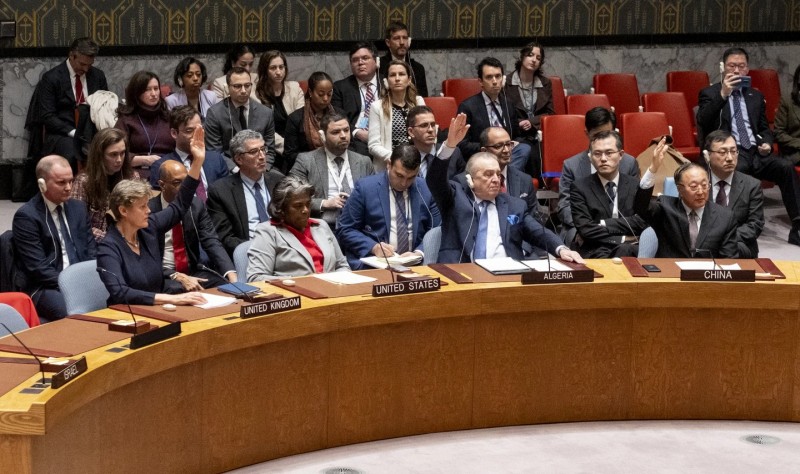 |
| The United Nations Security Council vote on March 25 on a resolution calling for a ceasefire in Gaza. (Source: AP) |
On March 25, the United Nations Security Council (UNSC) passed a resolution for the first time demanding a ceasefire in Gaza. The result was achieved with the US abstaining and 14 votes in favor at the UNSC.
In response, Israel canceled a planned visit to Washington by a high-level delegation. Israeli Prime Minister Benjamin Netanyahu accused the US of rejecting its "principled position" by allowing a vote without preconditions for a ceasefire in exchange for the release of hostages held by Hamas. This is considered the strongest public clash between the two allies since the conflict in the Gaza Strip began.
Change of direction sign
According to AP, the US abstention decision came at a time of increasing tensions between the administrations of US President Joe Biden and Mr. Netanyahu over Israel's military operations in the Gaza Strip, which have resulted in high civilian casualties and limited humanitarian assistance to the area.
In addition, the US and Israel also disagree over Mr Netanyahu's refusal to establish a Palestinian state, along with violence by Jewish settlers against Palestinians in the occupied West Bank and the expansion of settlements there.
Explaining this move, AFP quoted a source from Washington emphasizing that the blank ballot after many votes on similar resolutions of the Security Council, is not a change in policy, although it shows a tougher stance of the US towards Israel in recent weeks.
Meanwhile, The Washington Post quoted US officials as saying that they had made clear to their Israeli colleagues in successive discussions over the weekend that they would abstain, rather than veto, a UNSC resolution calling for a ceasefire, so they were disappointed by Israel's response.
Earlier, Le Figaro published an analysis of the US's change in its pro-Israel stance at the UN. According to the article, the US wants an immediate and lasting ceasefire in the area, where the Israel Defense Forces (IDF) have been fighting Hamas since the attack on October 7, 2023.
The article argues that the relationship between Mr. Biden and Mr. Netanyahu is worsening the solidarity between Israeli-Americans since the 1973 Yom Kippur War. The shift after six months of war in the Gaza Strip risks breaking traditional ties and Washington's support for the Jewish state in international organizations.
At the UN Security Council, US diplomats have been working for a month to hammer out a resolution demanding an immediate ceasefire, in the face of the threat of famine affecting much of the 2.4 million people trapped by the fighting between the IDF and Hamas. The change is historic and radical.
Since Hamas' surprise attack on Israeli territory on October 7, 2023, the US delegation to the UN has consistently refused to mention the term "ceasefire" and has warned of vetoing any resolution on this, citing Israel's legitimate right to self-defense after the brutal acts of Palestinian Islamist militants against civilians.
However, this view showed signs of changing direction in an interview with al-Hadath TV channel on March 20, US Secretary of State Antony Blinken said that the draft resolution of the UNSC called for "an immediate ceasefire, linked to the release of hostages" still being held by Hamas in Gaza.
“We very much hope that countries will support this resolution,” Mr. Blinken said. “Of course, we support Israel and its right to defend itself… but at the same time, we have to focus on the civilians who are in danger and who are suffering terribly.”
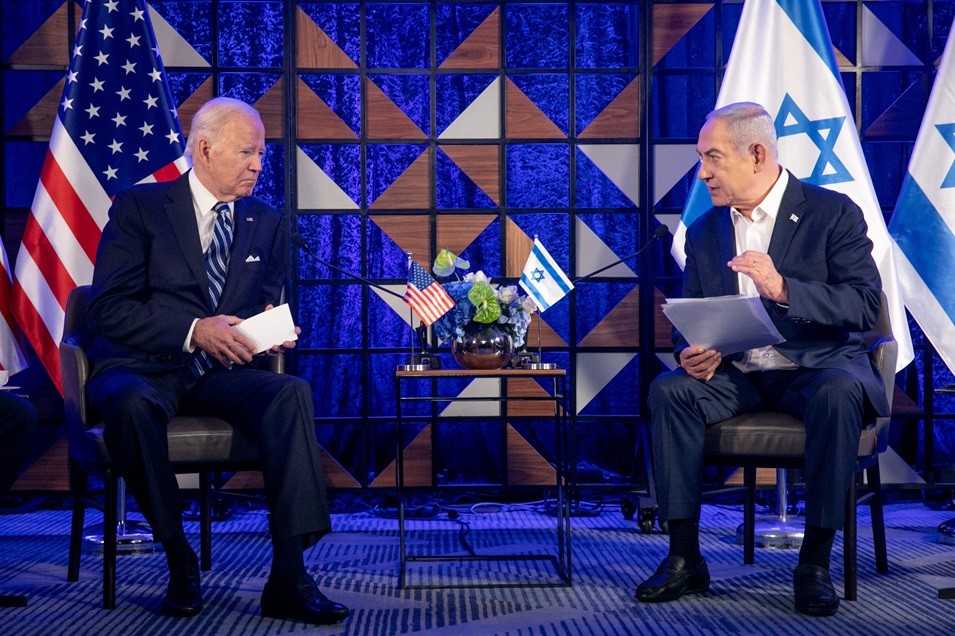 |
| US President Joe Biden (L) meets with Israeli Prime Minister Benjamin Netanyahu to discuss the ongoing conflict between Israel and Hamas, October 18, 2023, in Tel Aviv, Israel. (Source: Reuters) |
Disagreement rises
The recent passage of a resolution demanding a ceasefire in Gaza with the US abstaining appears to have turned the growing rift between Mr Biden and Mr Netanyahu into a public one.
The US side hastily asserted that there has been no change in its policy, Israel's plans for the Rafah operation will not happen in any case, negotiations on the release of hostages will continue and it expects future dialogue with Netanyahu and his government.
Meanwhile, Mr. Netanyahu issued a statement saying that the US had "abandoned its policy at the United Nations", and assessed this as "a clear departure from the traditional US position".
Hours after the vote, US National Security Council spokesman John Kirby sought to ease bilateral tensions, saying the US would continue to “support Israel” and push for the release of all hostages held by Hamas. However, he said the decision to cancel the visit by Prime Minister Netanyahu’s delegation was disappointing.
During the canceled visit to the United States, the Israeli delegation was scheduled to brief White House officials on plans for a ground offensive on Rafah, a city on the Egyptian border south of Gaza where more than 1 million Palestinian civilians have fled.
Last week, Mr. Blinken warned that Israel could soon face increasing international isolation, while US Vice President Kamala Harris also stressed that Israel could soon face unspecified consequences if it launched a ground attack.
Frank Lowenstein, a former State Department official who helped lead the 2014 Israeli-Palestinian talks, pointed to three key factors that could have led to Washington’s shift. First, deep disagreements between the US and Israel over the massive assault on Rafah, where more than a million Gazans have sought shelter. Second, the dire humanitarian situation. Third, Israel’s announcements of new settlements during Secretary of State Antony Blinken’s visit to the country on March 22.
“Biden has been doing everything he can for months to avoid a major war,” Lowenstein argued. “That reflects a very serious shift in the White House’s view of how to guide the Israelis through the rest of this war. Either the Israelis will pay attention now or we will probably continue to go down this path.”
Meanwhile, Mara Rudman, who served as the Obama administration's special Middle East envoy, said that while the US-Israel relationship could largely overcome these latest disagreements, the personal relationship between Mr Biden and Mr Netanyahu could be "particularly strained".
“Geopolitical relationships, like personal relationships, go through difficult times, even in the warmest marriages. The United States and Israel are in that situation right now,” Mara Rudman stressed.
Source


![[Photo] Opening of the 11th Conference of the 13th Party Central Committee](https://vstatic.vietnam.vn/vietnam/resource/IMAGE/2025/4/10/f9e717b67de343d7b687cb419c0829a2)
![[Photo] Unique folk games at Chuong Village Festival](https://vstatic.vietnam.vn/vietnam/resource/IMAGE/2025/4/10/cff805a06fdd443b9474c017f98075a4)



![[Photo] April Festival in Can Tho City](https://vstatic.vietnam.vn/vietnam/resource/IMAGE/2025/4/10/bf5ae82870e648fabfbcc93a25b481ea)
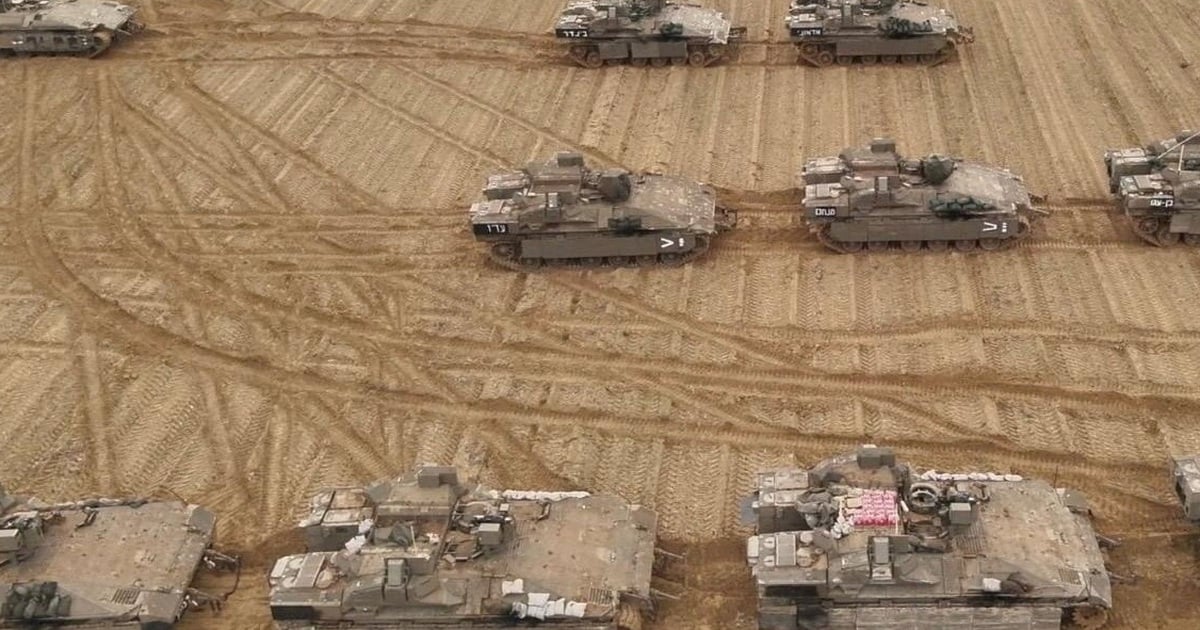

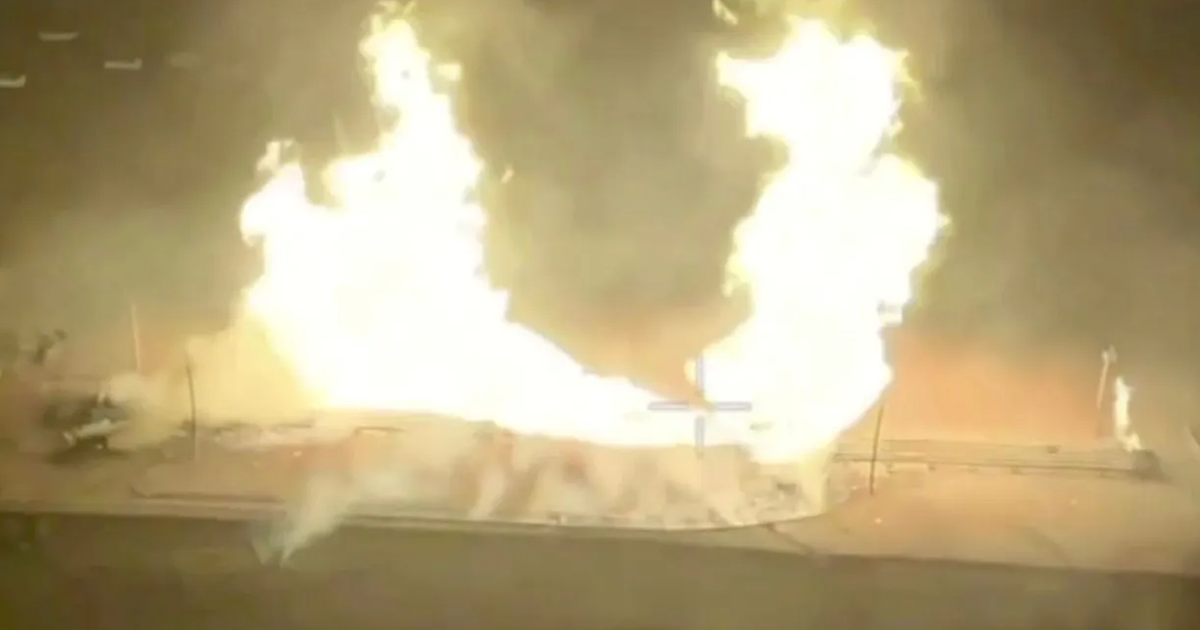


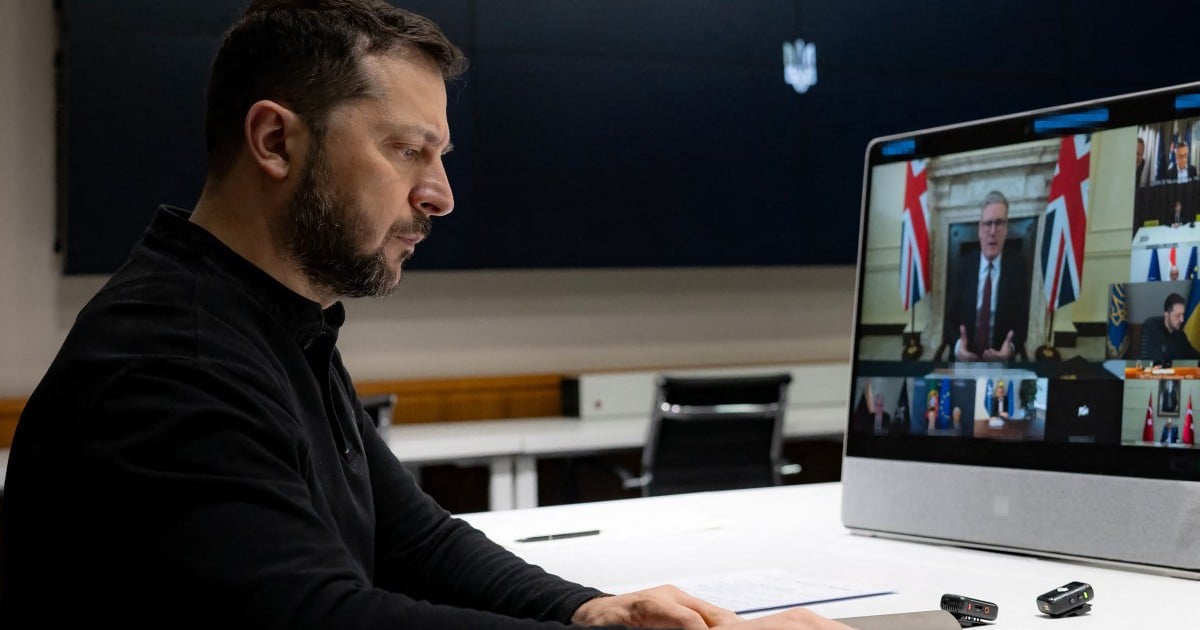
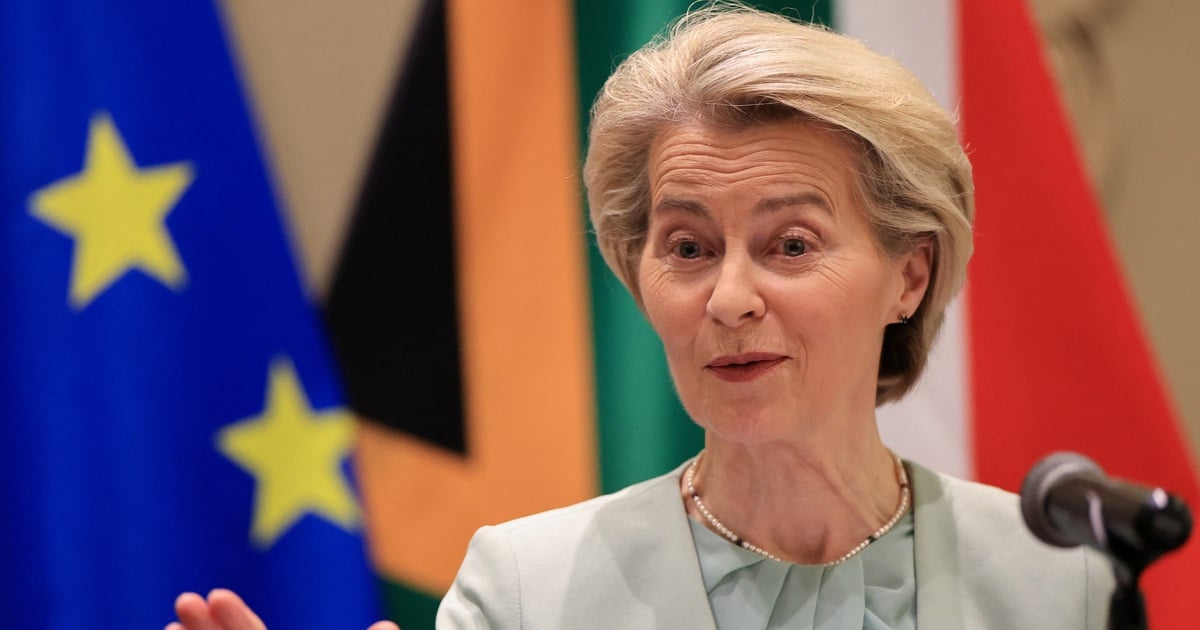





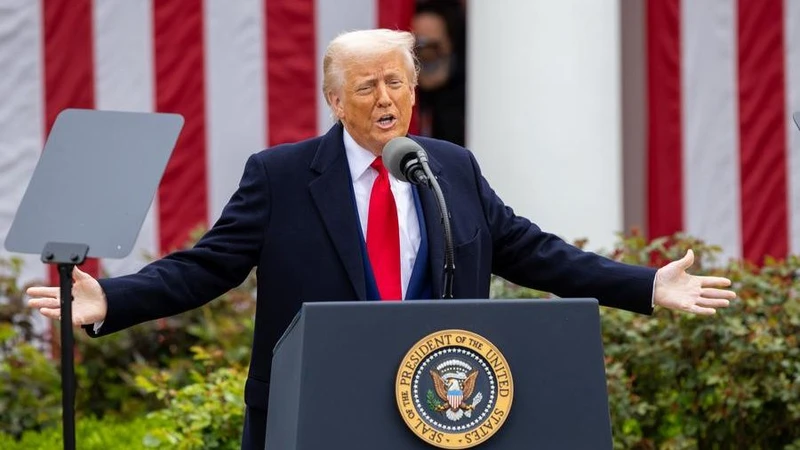
































































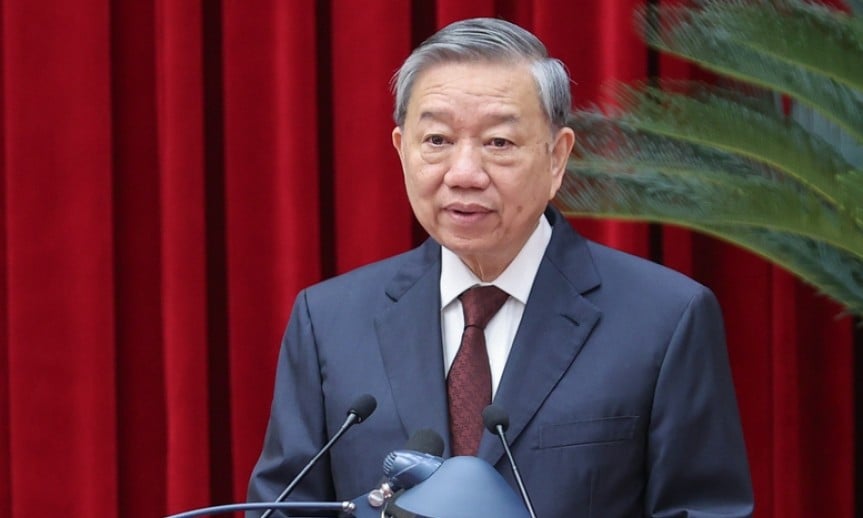







Comment (0)